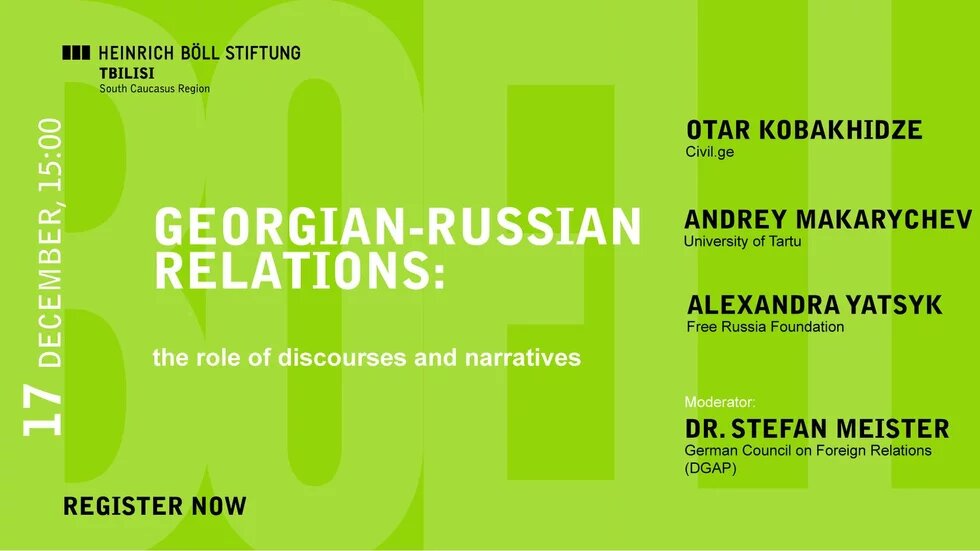On December 17th, the Heinrich Boell Foundation Tbilisi Office – South Caucasus Region organized an online presentation of a publication and discussion on Georgian-Russian relations.
The focus of the event was on the role of discourses and narratives in the Georgian debate about Russia and Russian discussion on Georgia.

We discussed following questions:
What are the main narratives about Russia in Georgia under the United National Movement (2003-2012) and Georgian Dream (since 2012)? When does the Russian factor resurface in Georgia’s political discourse, and why do Georgian political actors use and abuse pro-Russian labelling against their opponents?
Otar Kobakhidze, Editor-In-Chief, Civil.ge
What are the main narratives about Russia in Georgia? - Heinrich Boell Foundation South Caucasus
 Watch on YouTube
Watch on YouTube
How consistent are the discourses about Georgia in Russia? What aim do they have, and what political effects do they produce? What it means to be “pro-Russian” or “anti-Russian” in Georgia, given the variety of discourses coming from Russia and differently instrumentalized in the Georgian context?
Andrey Makarychev, University Professor of Tartu
Andrey Makarychev: How consistent are the discourses about Georgia in Russia? - Heinrich Boell Foundation South Caucasus
 Watch on YouTube
Watch on YouTube
What were the key narratives regarding Russian-Georgian relations as produced by the Russian state media in the context of the Covid-19 pandemic?
Alexandra Yatsyk, Tartu University, Johan Skytte Institute of Political Studies/ Lille University, IRHIS
Key narratives on Russian-Georgian relations, produced by the Russian state media - Heinrich Boell Foundation South Caucasus
 Watch on YouTube
Watch on YouTube
Moderator: Dr. Stefan Meister, German Council on Foreign Relations (DGAP)
Opening remarks: Dr. Sonja Schiffers, Director, Heinrich Boell Foundation Tbilisi Office – South Caucasus Region
